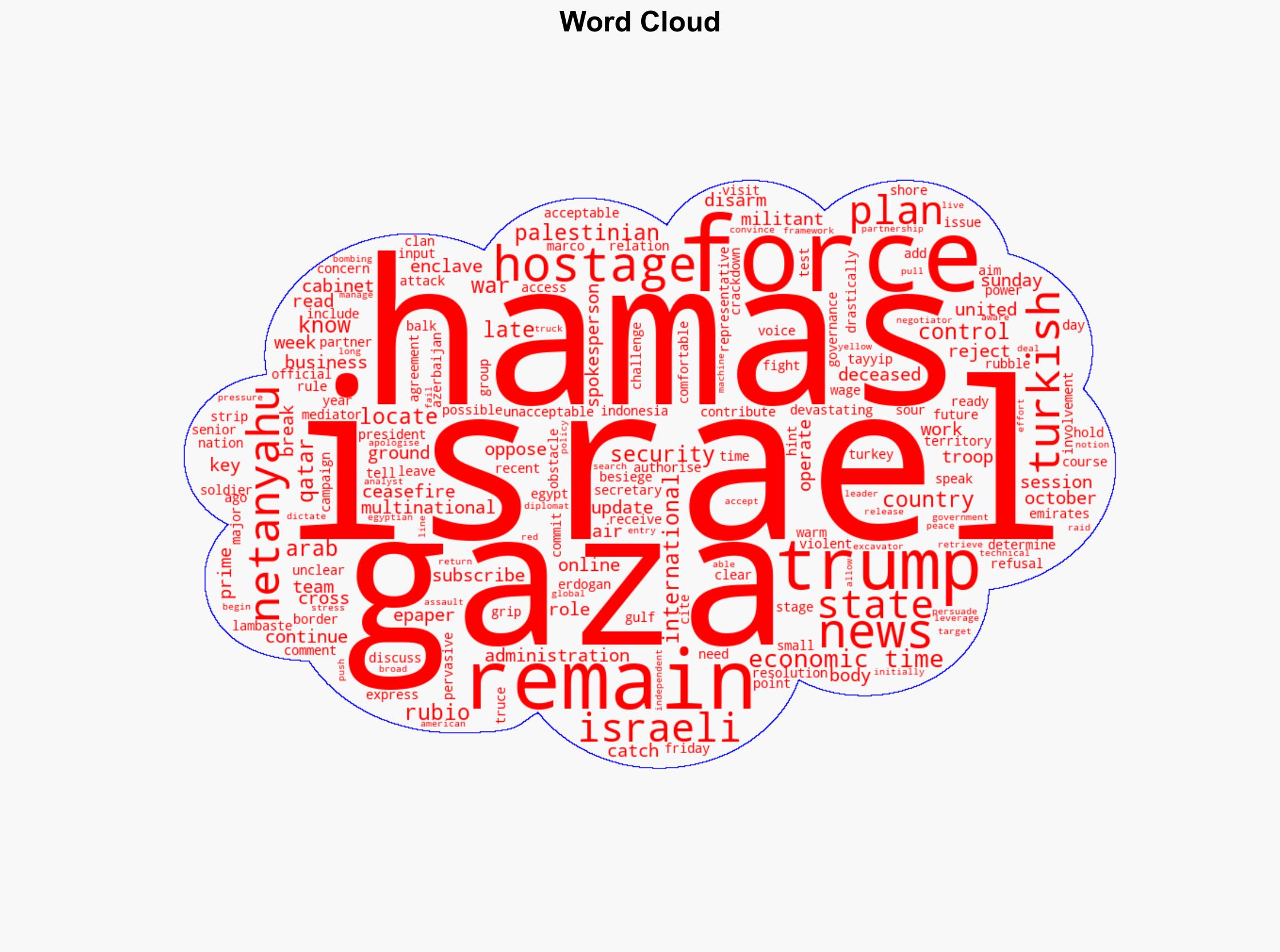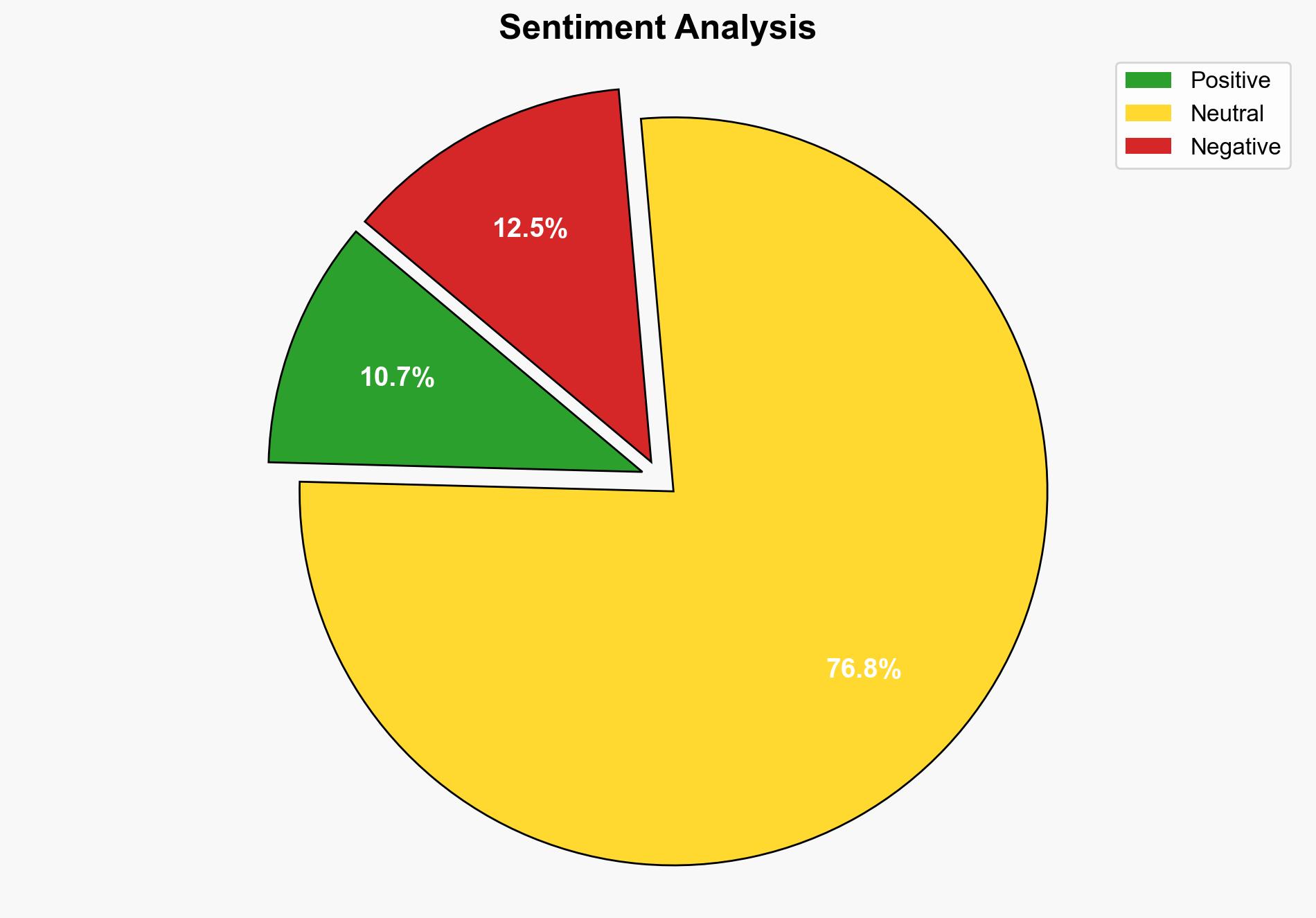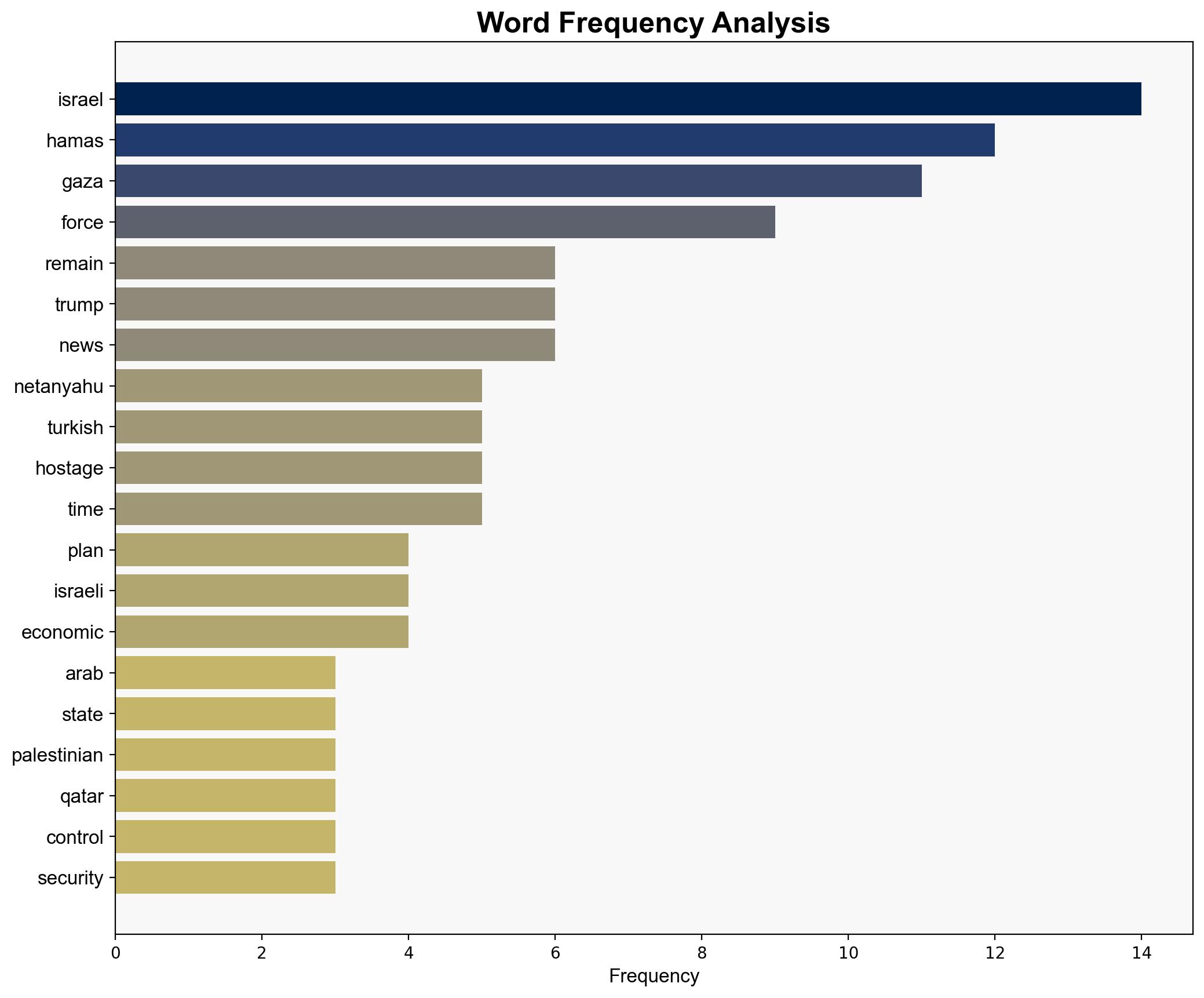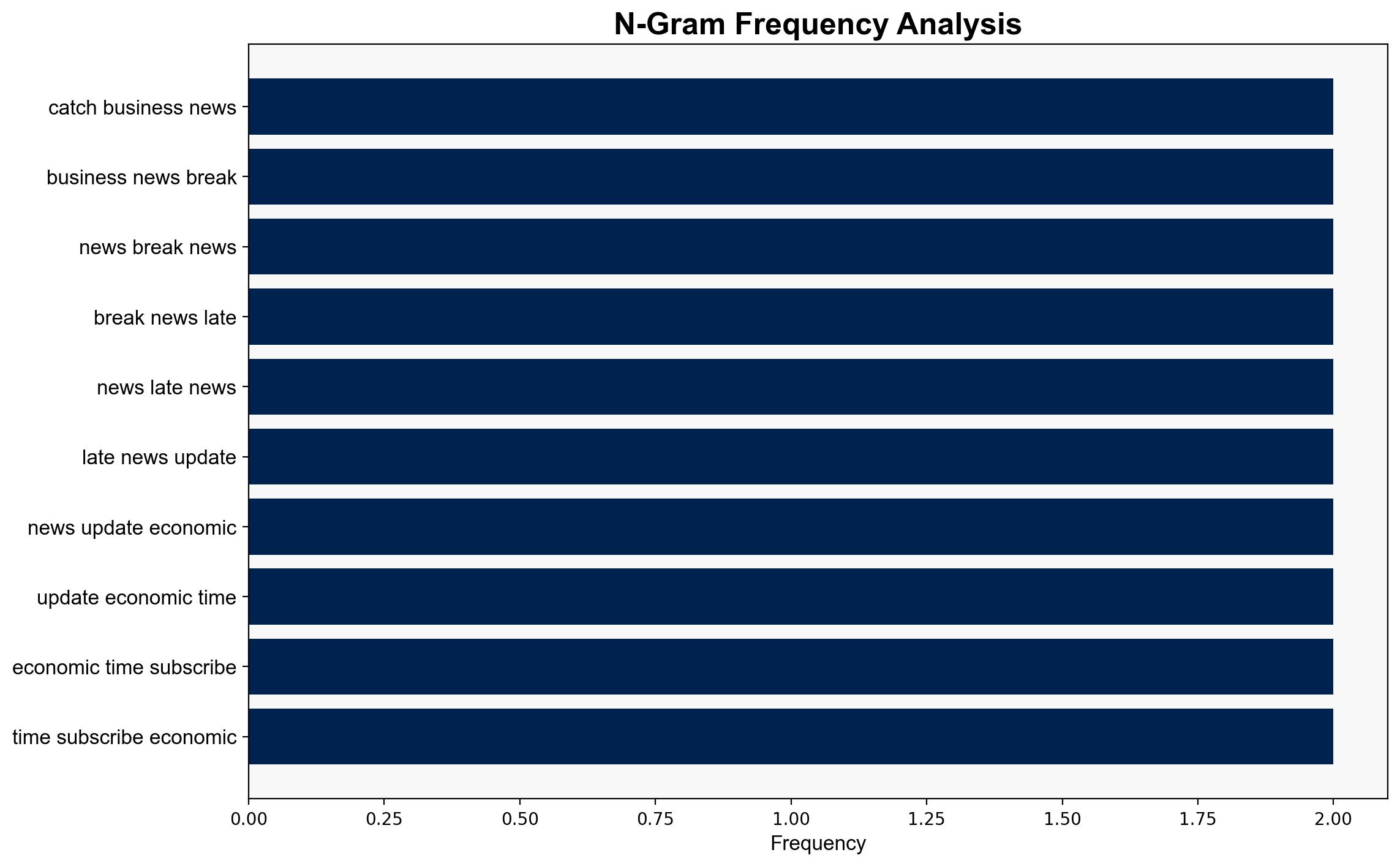Netanyahu says Israel will decide which foreign troops acceptable to secure Gaza ceasefire – The Times of India
Published on: 2025-10-27
Intelligence Report: Netanyahu says Israel will decide which foreign troops acceptable to secure Gaza ceasefire – The Times of India
1. BLUF (Bottom Line Up Front)
The most supported hypothesis is that Israel aims to maintain strategic control over Gaza’s security arrangements by selectively accepting foreign troops, primarily from nations with aligned interests. Confidence level: Moderate. Recommended action: Monitor diplomatic engagements and troop deployment discussions to anticipate shifts in regional alliances and security dynamics.
2. Competing Hypotheses
1. **Hypothesis A**: Israel’s decision to control which foreign troops are acceptable is primarily driven by security concerns and the desire to prevent hostile entities, like Turkey, from gaining influence in Gaza.
2. **Hypothesis B**: Israel’s stance is a strategic maneuver to leverage international negotiations, using troop acceptance as a bargaining chip to extract concessions from other nations and ensure favorable terms in any ceasefire agreement.
Using ACH 2.0, Hypothesis A is better supported by the evidence of Israel’s historical opposition to Turkish involvement and the emphasis on security control. Hypothesis B is plausible but less supported due to the lack of explicit evidence of Israel using troop acceptance as a negotiation tool.
3. Key Assumptions and Red Flags
– **Assumptions**: Israel’s security concerns are genuine and not a pretext for broader geopolitical objectives. The international community will respect Israel’s preferences for troop deployment.
– **Red Flags**: Lack of clarity on which countries are willing to commit troops and the potential for misinterpretation of Israel’s intentions by other nations.
– **Blind Spots**: The internal dynamics within Gaza and the potential for non-state actors to disrupt any agreed-upon security arrangements.
4. Implications and Strategic Risks
– **Geopolitical**: Potential strain on Israel’s relationships with countries excluded from troop deployment, particularly Turkey.
– **Security**: Risk of escalated tensions if Hamas perceives the troop deployment as a threat to its control.
– **Economic**: Prolonged instability in Gaza could impact regional trade and economic cooperation.
– **Psychological**: The perception of foreign troop presence could influence public opinion within Gaza and Israel, potentially affecting peace efforts.
5. Recommendations and Outlook
- Engage in diplomatic dialogue with key regional players to clarify troop deployment intentions and mitigate misunderstandings.
- Scenario Projections:
- **Best Case**: Successful deployment of a multinational force that stabilizes Gaza and facilitates a durable ceasefire.
- **Worst Case**: Breakdown in negotiations leading to renewed conflict and increased regional instability.
- **Most Likely**: Gradual progress with intermittent setbacks as negotiations continue and troop deployment is cautiously implemented.
6. Key Individuals and Entities
– Benjamin Netanyahu
– Tayyip Erdogan
– Marco Rubio
– Hamas leadership
7. Thematic Tags
national security threats, regional focus, geopolitical strategy, international diplomacy




